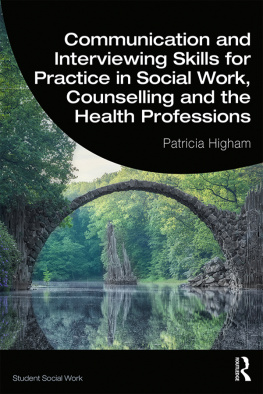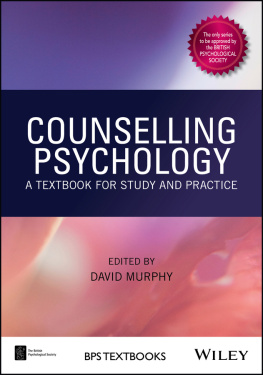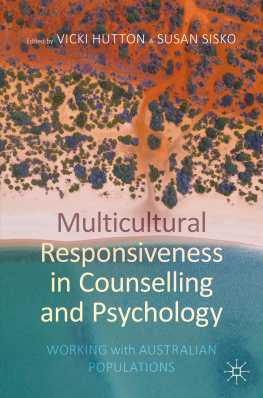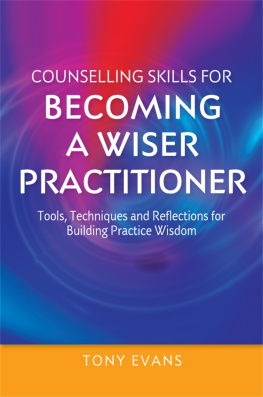Learning Matters
An imprint of SAGE Publications Ltd
1 Oliver's Yard
55 City Road
London EC1Y 1SP
SAGE Publications Inc.
2455 Teller Road
Thousand Oaks, California 91320
SAGE Publications India Pvt Ltd
B 1/I 1 Mohan Cooperative Industrial Area
Mathura Road
New Delhi 110 044
SAGE Publications Asia-Pacific Pte Ltd
3 Church Street
# 10-04 Samsung Hub
Singapore 049483
Sally Riggall 2012
First published in 2012
Apart from any fair dealing for the purposes of research or private study, or criticism or review, as permitted under the Copyright, Design and Patents Act, 1988, this publication may be reproduced, stored or transmitted in any form, or by any means, only with the prior permission in writing of the publishers, or in the case of reprographic reproduction, in accordance with the terms of licences issued by the Copyright Licensing Agency. Enquiries concerning reproduction outside these terms should be sent to the publishers.
Professional Capabilities Framework diagram reproduced with permission of The College of Social Work
Library of Congress Control Number: 2012933567
British Library Cataloguing in Publication Data
A catalogue record for this book is available from the British Library
ISBN: 978 0 85725 840 3
ISBN: 978 0 85725 629 4 (pbk)
Editor: Luke Block
Development Editor: Kate Lodge
Production Controller: Chris Marke
Project Management: Deer Park Productions, Tavistock, Devon
Marketing Manager: Tamara Navaratnam
Cover Design: Code 5 Design
Typeset by: Pantek Media, Maidstone, Kent
Printed by: MPG Books Group, Bodmin, Cornwall
Series Editors' Preface
Jonathan Parker
The Western world including the UK face numerous challenges over forthcoming years, including the need to deal with the impact of an increasingly ageing population, with its attendant social care needs and working with the social and economic implications that such a changing demography brings. At the other end of the life-span the need for high quality child care, welfare and safeguarding services have been highlighted as society develops and responds to a changing complexion. The emotional needs of individuals are often submerged within this sea of change, and demand attention to the complex ways in which social work practice must attend to psychosocial and emotional needs.
Migration has increased as a global phenomenon and we now live and work with the implications of international issues in our everyday and local lives. Often these issues influence how we construct our social services and determine what services we need to offer. It is likely that as a social worker you will work with a diverse range of people throughout your career, many of whom have experienced significant, even traumatic, events that require a professional and caring response grounded, of course, in the laws and social policies that have developed as a result. As well as working with individuals, however, you may be required to respond to the needs of a particular community disadvantaged by world events or excluded within local communities because of assumptions made about them, and you may be embroiled in some of the tensions that arise from implementing policy-based approaches that may conflict with professional values. What is clear within these contexts is that you may be working with a range of people who are often at the margins of society, socially excluded or in need of protection and safeguarding: in this book, a range of responses drawn from counselling techniques, especially from Egan's work, are redesigned for application to people marginalised within or excluded from society. This text provides an important reminder that social work represents one of the helping professions in our social world, and offers information to help you become aware of these issues, and to respond appropriately when faced with challenging situations.
The importance of social work education came to the fore again following the inquiry into the death of baby Peter and the subsequent report from the Social Work Task Force set up in its aftermath. It is timely, also, to reconsider elements of social work education as is being taken forward by the Reform Board process in England and its implementation indeed, we should view this as a continual striving for excellence! Reflection, revision and reform allow us to focus clearly on what knowledge is useful to engage with in learning to be a social worker. The focus on statutory social work, and by dint of that involuntary clients, brings to the fore the need for social workers to be well-versed in the ways in which people can be helped to engage with social work. This important book provides readers with a beginning sense of the realities of practice and the importance of understanding and applying interpersonal skills to assist people in moving forwards and/or reaching acceptance of difficult and complex situations.
The books in this series respond to the agendas driven by changes brought about by professional body, Government, disciplinary review and academic developments. They aim to build on and offer introductory texts based on up-to-date knowledge, social work and social policy developments and to help communicate this in an accessible way preparing the ground for future study as you develop your social work career. The books are written by people passionate about social work and social services and aim to instil that passion in others. The knowledge introduced in this book is important for all social workers in all fields of practice as they seek to reaffirm social work's commitment to those it serves.
Professor Jonathan Parker
Bournemouth University Greta Bradley, University of York
About the Author
Sally Riggallis a Senior Lecturer in the School of Health and Social Care at the University of Lincoln where she teaches both communication and counselling skills to social work and social care students. She is a qualified counsellor and has practised in a range of settings, encompassing doctors' surgeries and the public sector. Prior to her current position, she worked as a lecturer in further education where she managed and taught on a programme of professional counselling courses. Her research interests are primarily concerned with exploring how Egan's Skilled Helper model can assist social work students to place service-users at the centre of decision making.
Acknowledgements
I would like to thank all the students, practice educators and service-users who have so willingly given their time and contributed material to this book. I would also like to thank my colleagues at the University of Lincoln, especially Leslie Hicks and Leonne Griggs who not only shared with me their considerable knowledge and expertise but also provided me with detailed feedback and unstinting support; and Heather Flynn and Terry O'Sullivan for their kind words and practice wisdom. I would also like to acknowledge the helpful comments and advice given to me by Luke Block, Kate Lodge and Jonathan Parker at Sage/Learning Matters.










